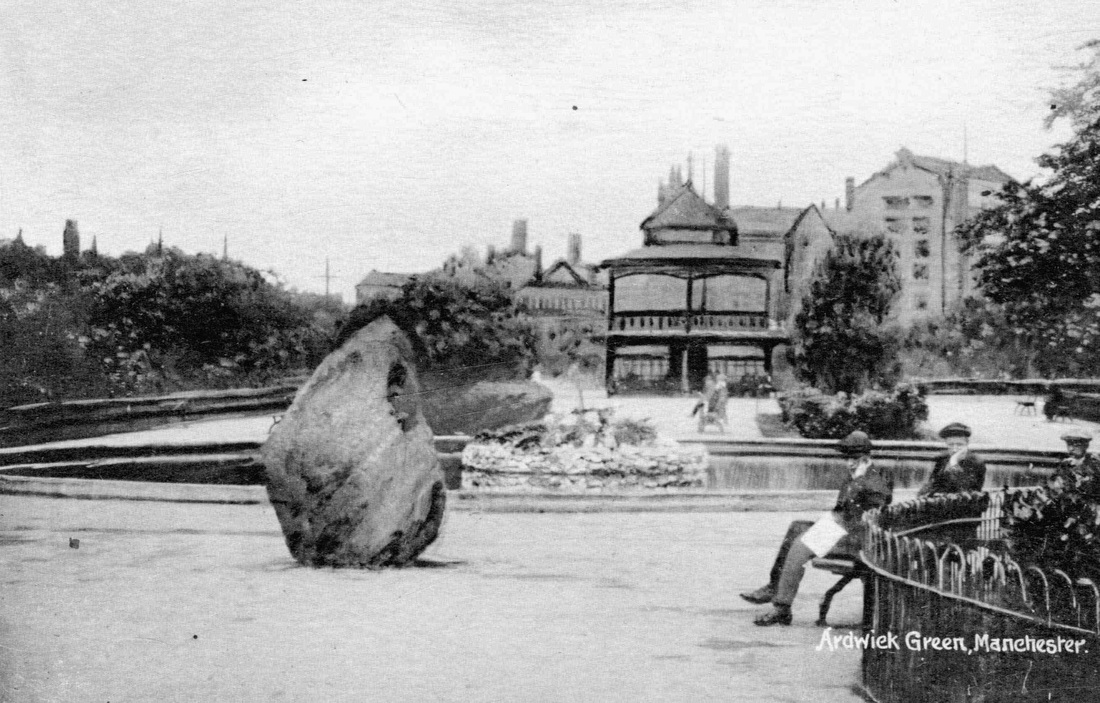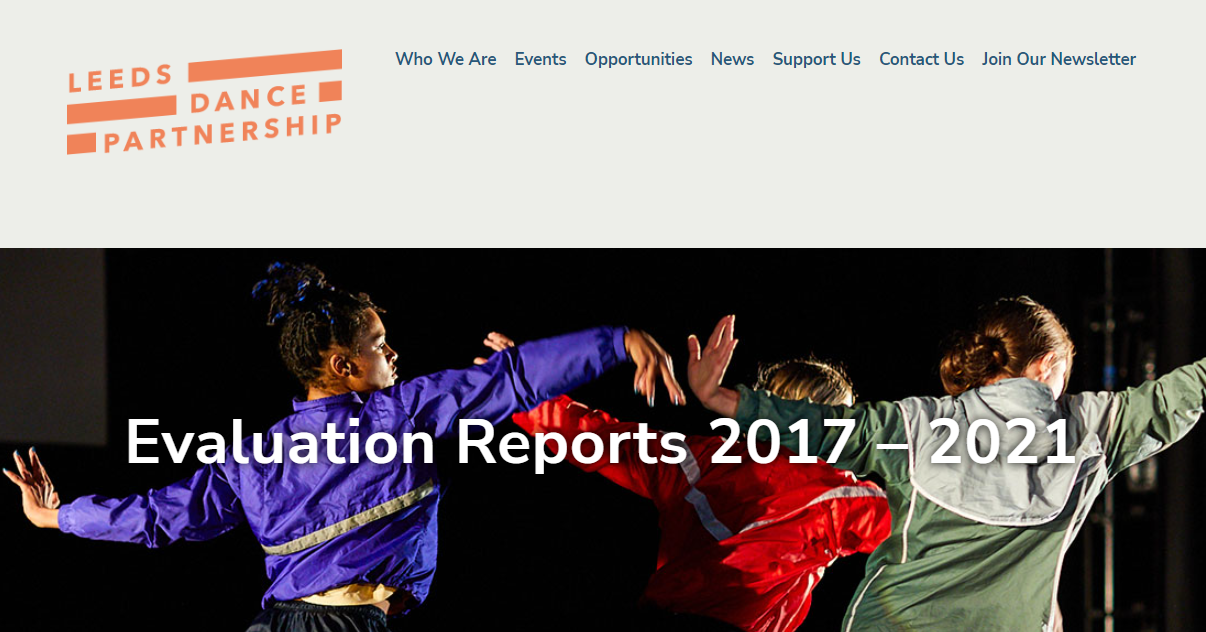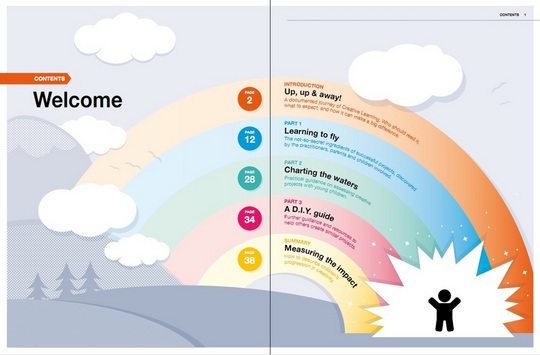|
Nothing makes me happier as an evaluator than clients who use and share the evaluation to improve their work and the work of others. It's the direct opposite of sending your report off to trustees or funders and forgetting about it. So I was delighted to find out Leeds Dance Partnership (LDP) had done exactly that. I recently completed their impact and process evaluation for the first four official years of the partnership - a three quarters of a million pound initiative supported by Arts Council England's (ACE) Ambition for Excellence scheme.
It was a very complicated partnership, programme and evaluation. Partners had to be honest, not only identifying successes, but also looking at where not everything had gone to plan. We included it all. Participants, the local and national dance sector, the Leeds cultural decision makers, and regional freelance artists all inputted to ensure a really balanced and practical set of perspectives. There was a lot to say about the achievements, pitfalls and learning along the way. And at the same time we wanted the report to be accessible, easy to find what different people needed. As soon as the report was completed, LDP sent it off to ACE ahead of a follow-up meeting. I rarely expect funders to read evaluation reports, knowing how stretched everyone's workload is. So I was delighted to hear ACE had not only read the report but also fed back their appreciation that "the report was more thorough than we expected - very good, and we welcomed the SWOT which explored the flaws as well as stating the positives." Those investing in your work really do want to see the learning process not just the good news stories (of course they want to see those too!). I thought that was the end of the story, but no. I was even more pleased when I received a message out of the blue via LinkedIn from an Organisational Development Consultant now working with Leeds Dance Partnership who said the report had been shared with her and, "I found this such a helpful and insightful piece of work that I wanted to write to say thank you as it has enabled me to engage with LDP faster and in a more informed way than would otherwise have been the case." LDP has also made the summary and full reports available for anyone via their website here or you can read it on screen / download directly from my own collection here. A variety of other examples of my evaluation reports are also available on the Example Reports page. So - these are just a couple of examples of what the point of evaluation is. It's a way to reflect, learn and evolve. It's a way to pass the memory of what happened, what worked and what didn't on from one set of people to another, to save time, stop reinventing wheels, and make the most of the resources you have. There are other reasons to do evaluation, do it well, and put it to good use. But making it publicly available and actively sharing it are a couple that really make me feel the work has been worthwhile.
0 Comments
 Image courtesy of Manchester Libraries, Information and Archives, Manchester City Council Image courtesy of Manchester Libraries, Information and Archives, Manchester City Council I've just recently started work on the evaluation of a year long programme hosted by Manchester Metropolitan University's Institute of Humanities and Social Science research. Entitled Creating Our Future Histories, the scheme sees 'early career researchers' (usually those who are completing a PhD, or are just about to start one / have recently finished one) working with Manchester community organisations. Each partnership is mentored by a more experienced academic. The partnerships are punctuated along the way by a series of weekend workshops combining into a professional development course on how community engagement between academics / researchers / communities might take shape. Each partnership is also expected to meet at least once between each workshop. The partner-groups are developing co-constructed plans and activities which research previously uncharted areas of the organisation's heritage, and look towards incorporating their future in a way which will become part of their heritage in years to come - there's the 'Future Histories' part. Late next Spring each group will showcase their findings in creative and public ways - many yet to be decided; though ideas are already circulating about film, video, exhibtions, time capsules and more. I'm about a month in and I'm once again struck by the many rich and hidden histories of Manchester - industry, architecture, battle and radical action, many many things which show the inventiveness and resilience of this sometimes bloody minded and often ingenius city. You can find out more about the project here and I particularly recommend the research group pages and project blogs to find out more about the organisations involved and the progress and reflections taking place. 1/5/2011 One Small Step for Early Years, One Giant Leap for Children: a toolkit for creativity with young childrenRead NowThis time last year I was lucky enough to work with Isaacs UK and CAPE UK, exploring the work of artists and creative practitioners working with children and staff in ten early years settings across Leeds. They settings worked together as network, using Creative Partnerships' enquiry model of working to test out their activities. My role was to pull together everyone's learning, summarising shared findings and exceptional experiences, laying these out in a way which might be helpful for others looking for new and / or creative ways to unlock potential in their children. To round up a few of the ups and downs, things that worked, things that didn't work quite so much, and some of the thinking the creative and early years practitioners travelled through together or separately. At the heart of it all, to tell some of the stories of the children and how their outlook on the world changed a little as a result of the projects. On a more formal side, we looked at a couple of different ways of monitoring the progress of children - both in terms of the Foundation Stage areas, and in their wellbeing and involvement through a system known as EXE (Experiential Education). CAPE set some fantastic designers loose on the content I wrote with IsaacsUK, and the result is a really stunning and accessible looking publication. Please read, browse, enjoy and most importantly - pass it on to anyone who might make use of it. Browse or download it below, or online *here* There are some things I've thought it would be good to do for a long time, but it's never been part of my paid work to do them, and so they haven't got done. I'm noting them here as a reminder to myself and an invitation to anyone who is interested, to commission me to do them, and share them freely and publicly (or at least under creative commons) for the wider benefit of those who can use them:
1. A list of what managing, researching and evaluating many projects has taught me about partnership - what it does or doesn't mean, what it looks like, the different shapes it takes, the benefits, challenges, pitfalls, successes, opportunities and more 2. A top ten of findings / recommendations that arise in my evaluation work. Mostly around the process of managing projects - resources, processes, staffing, communication, planning, sustainability and legacy - those sorts of things. There are so many shared benefits and challenges I see time and time again, to the point it makes me sad that these things have to be learned afresh each time with publicly funded activity. Wouldn't it be better if we can do more learning from each other and move things on? 3. A portfolio of what creative consultation / creative evaluation can look like - examples of things I've tried myself and examples that other people have developed in their work. There might be more to this list of lists but these are the freshest in my mind just now. So if you can't afford a specialist consultant for these things, do keep popping back, maybe one day someone will have commissioned them from me and they will be available to you for free. |
Details
...BlogI'm most interested in how the public, your public, whoever that may be, engages with culture and creativity.
And if it nurtures creativity and develops personal, social or professional skills I'm absolutely all ears. Categories
All
Archives
May 2023
|




 RSS Feed
RSS Feed
